How to Fix Sensitive Teeth After Whitening?

Does Toothache Cause Headache?
October 24, 2024
How to Clean Dental Braces?
November 7, 2024Whitening treatments often make teeth sensitive. This sensitivity can feel like sharp, uncomfortable sensations, especially with hot or cold foods. Many people experience this after whitening treatments. This guide explains sensitive teeth after whitening, why it happens, how long it may last, and effective ways to ease the pain.
Table of Contents
ToggleWhy Do Teeth Get Sensitive After Whitening?
Whitening treatments work by opening up tiny tubes in your teeth. These tubes, or tubules, allow bleaching agents to remove stains deep within the enamel. When open, the tubules make teeth more sensitive to temperature changes and when you have certain foods. Sensitive teeth after whitening might become a hassle, especially if you have your whitening sessions in Washington at a not reputable clinic.
How Long Does Teeth Sensitivity Last After Whitening?
After whitening, sensitivity usually lasts a few hours to a couple of days. In some cases, especially after using whitening strips, the sensitivity can last longer, but it typically fades within a week. Teeth sensitivity after whitening can vary, but here are typical time ranges:
- You feel mild sensitivity for a few hours to 24 hours. This is common for in-office whitening treatments.
- Within 1 to 3 days, you may feel moderately sensitive. It is common for stronger treatments, including whitening strips.
- Sensitivity may continue up to a week, especially with repeated or intense whitening sessions.
- If sensitivity lasts more than a week, consult an experienced cosmetic dentist.

How to Treat Sensitive Teeth After Whitening?
Toothpaste for sensitive teeth eases sensitivity and strengthens enamel. If you feel any discomfort, these simple tips may bring relief:
- Sensitive toothpaste has ingredients like potassium nitrate, which calm tooth nerves. Apply a dab to sensitive spots after brushing for extra relief.
- Skip hot or ice-cold drinks for a few days. Room-temperature foods and drinks are easier on sensitive teeth.
- A soft-bristle brush is gentle on teeth and gums. Brush carefully to avoid irritation.
- Avoid acidic foods like citrus, soda, and vinegar, which can worsen sensitivity. Choose low-acid foods like bananas and leafy greens.
- Fluoride strengthens enamel and reduces sensitivity. Use a fluoride rinse at night, swish for a minute, spit, and avoid rinsing with water afterward.
- Stop using any whitening treatments until sensitivity fades to give teeth time to recover.
- Saltwater soothes irritation. Mix half a teaspoon of salt in warm water, swish, and spit. Use once or twice daily.
- Coconut oil reduces bacteria and can ease sensitivity. Swish a tablespoon for 10–15 minutes, then spit it out.
- If sensitivity is intense, consider ibuprofen or acetaminophen as directed, but only as a temporary solution.
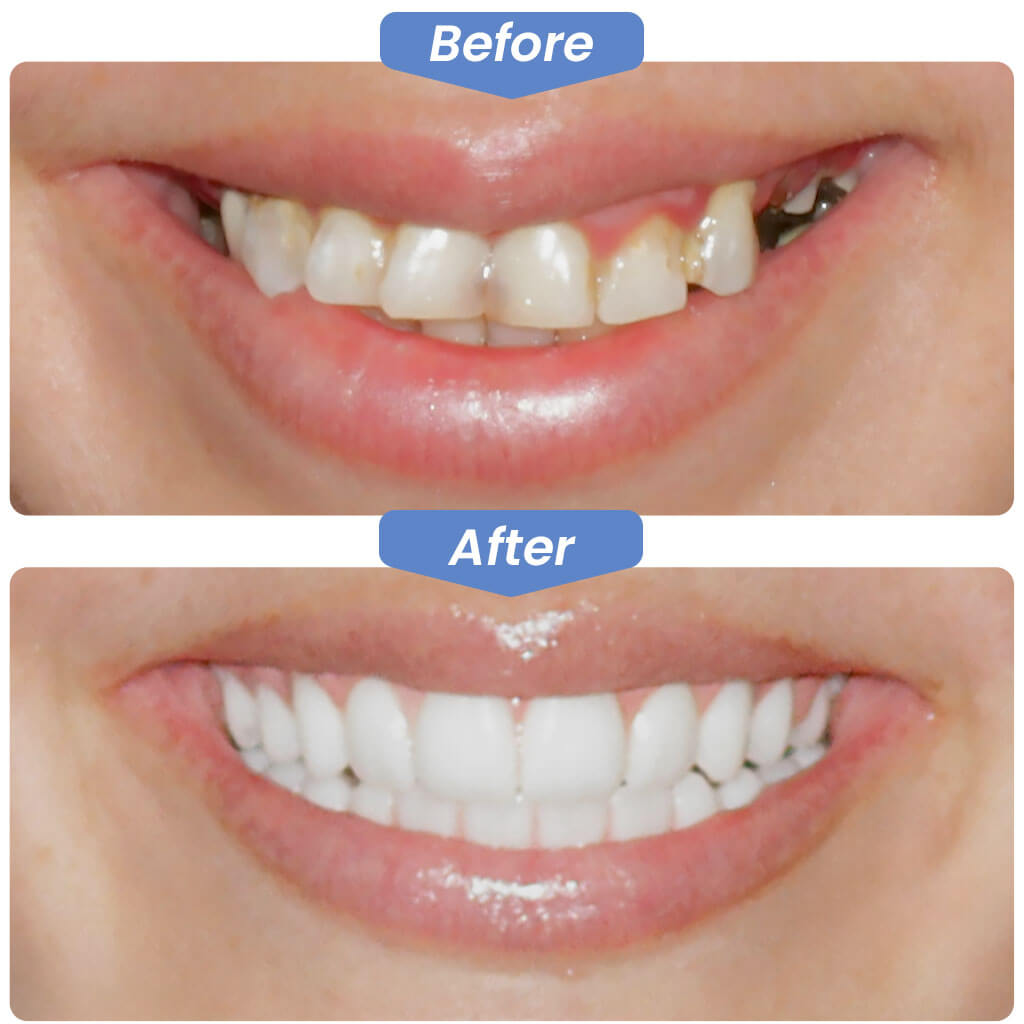
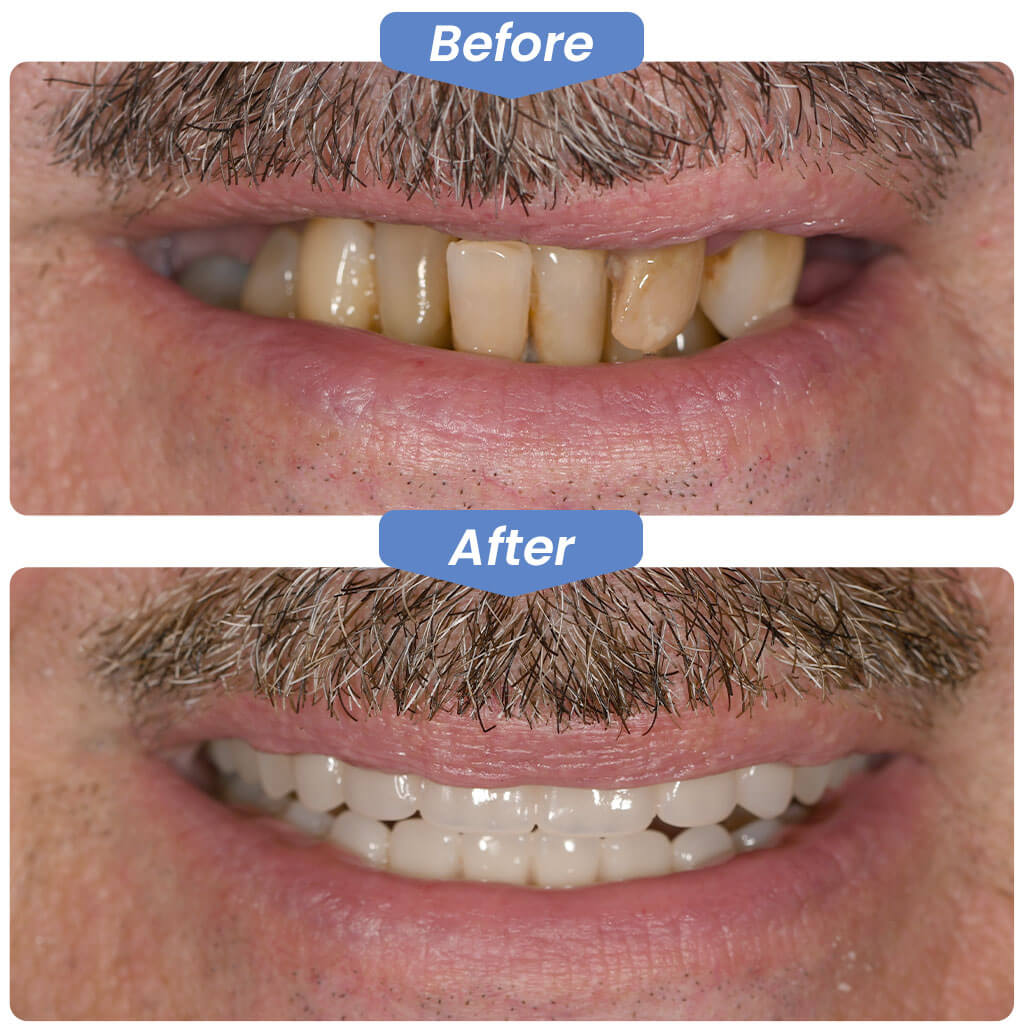
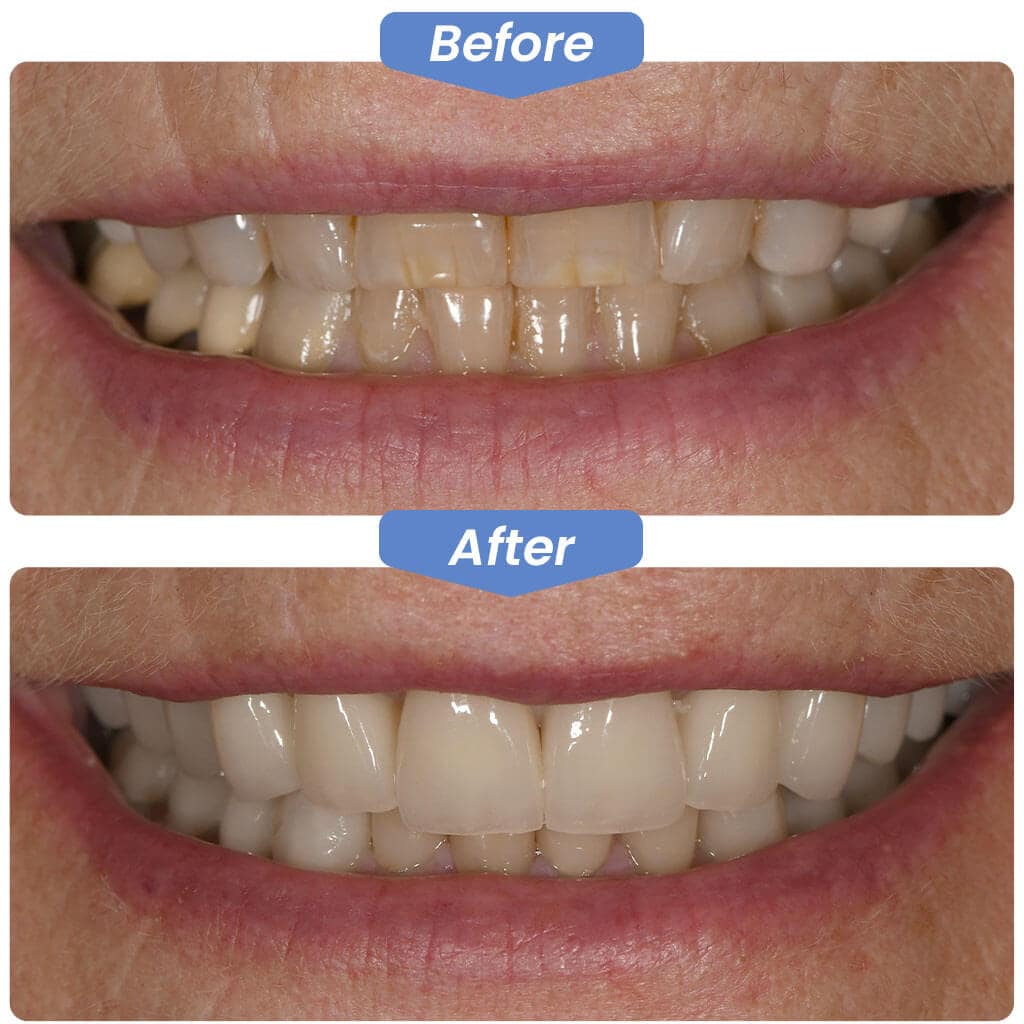
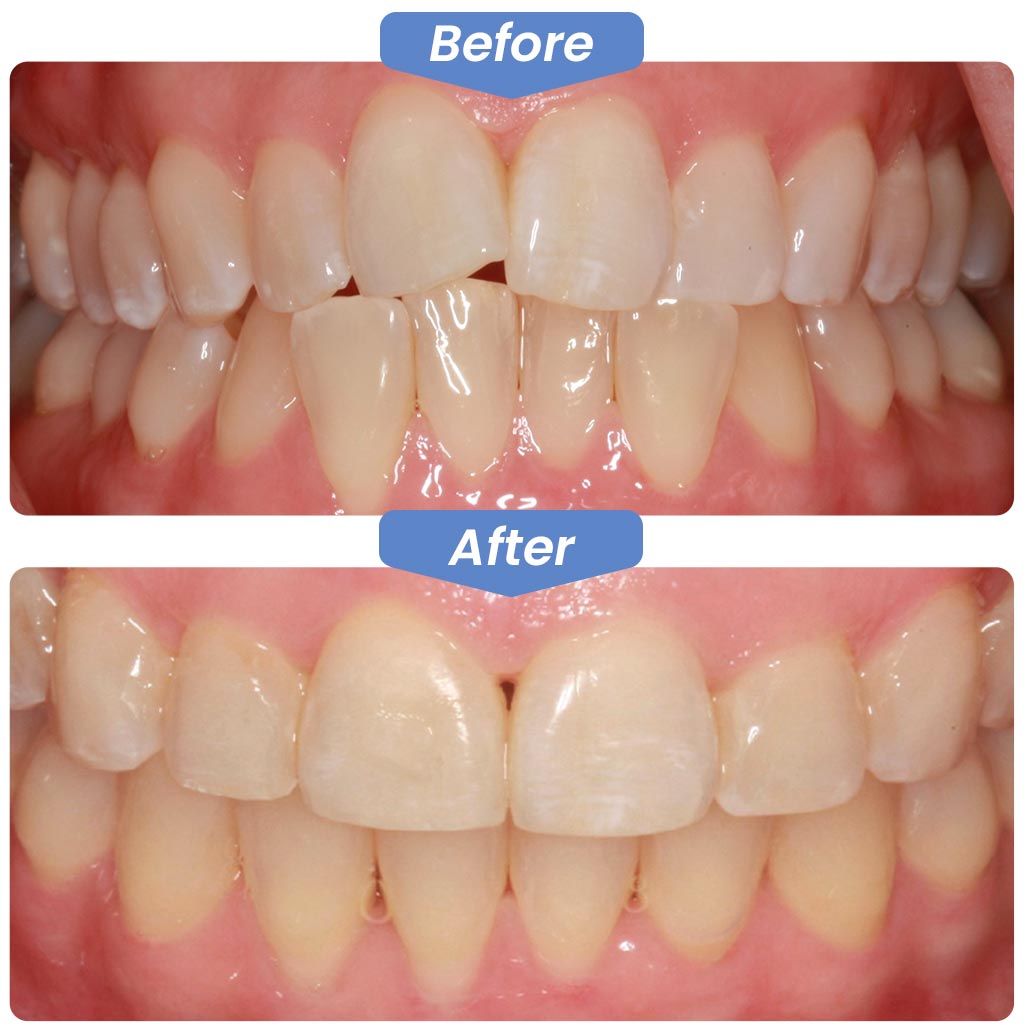
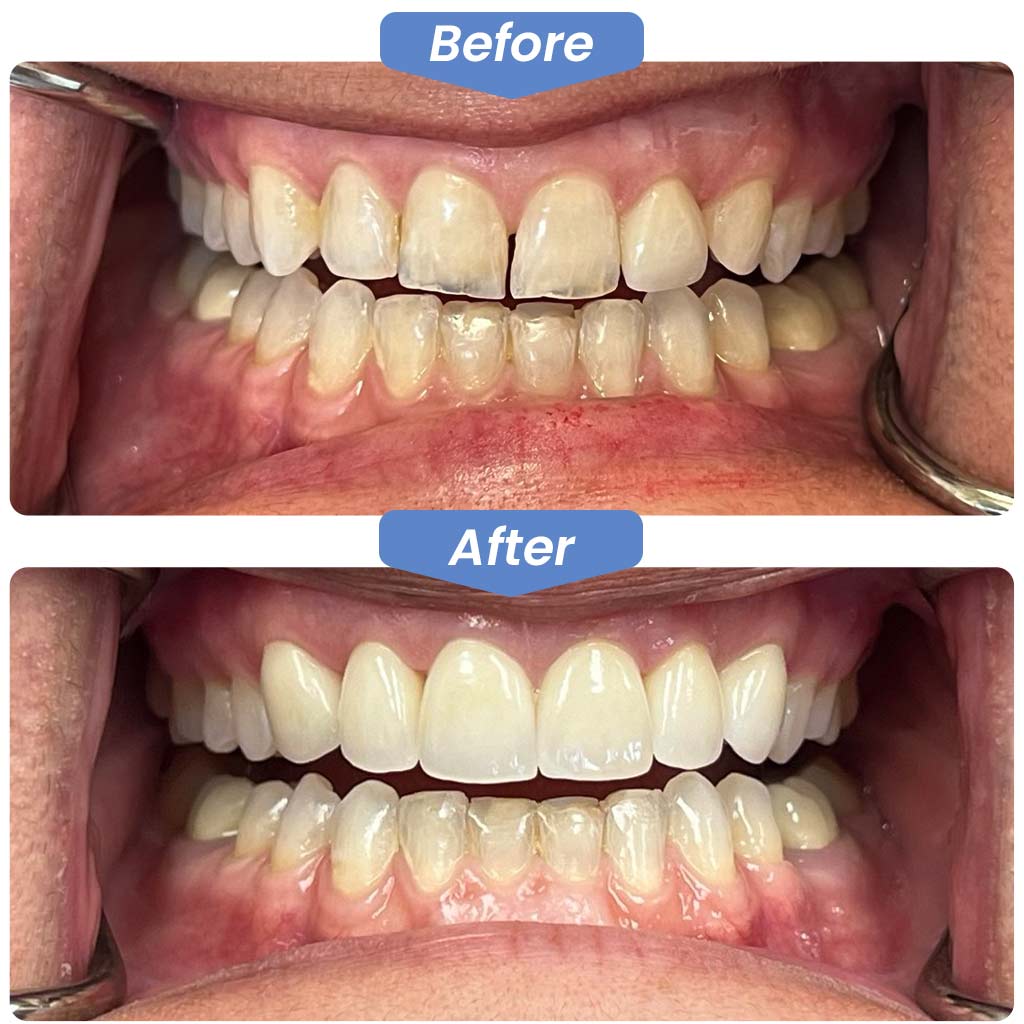
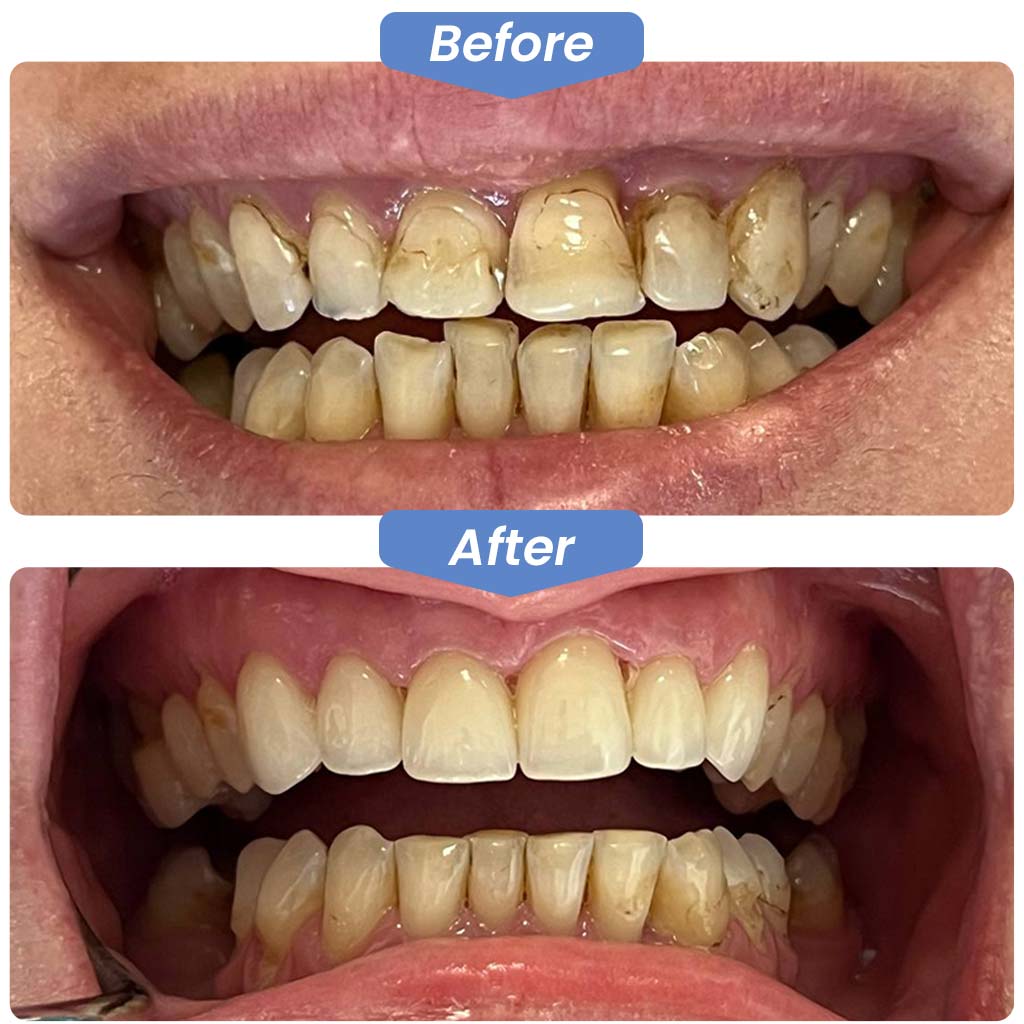
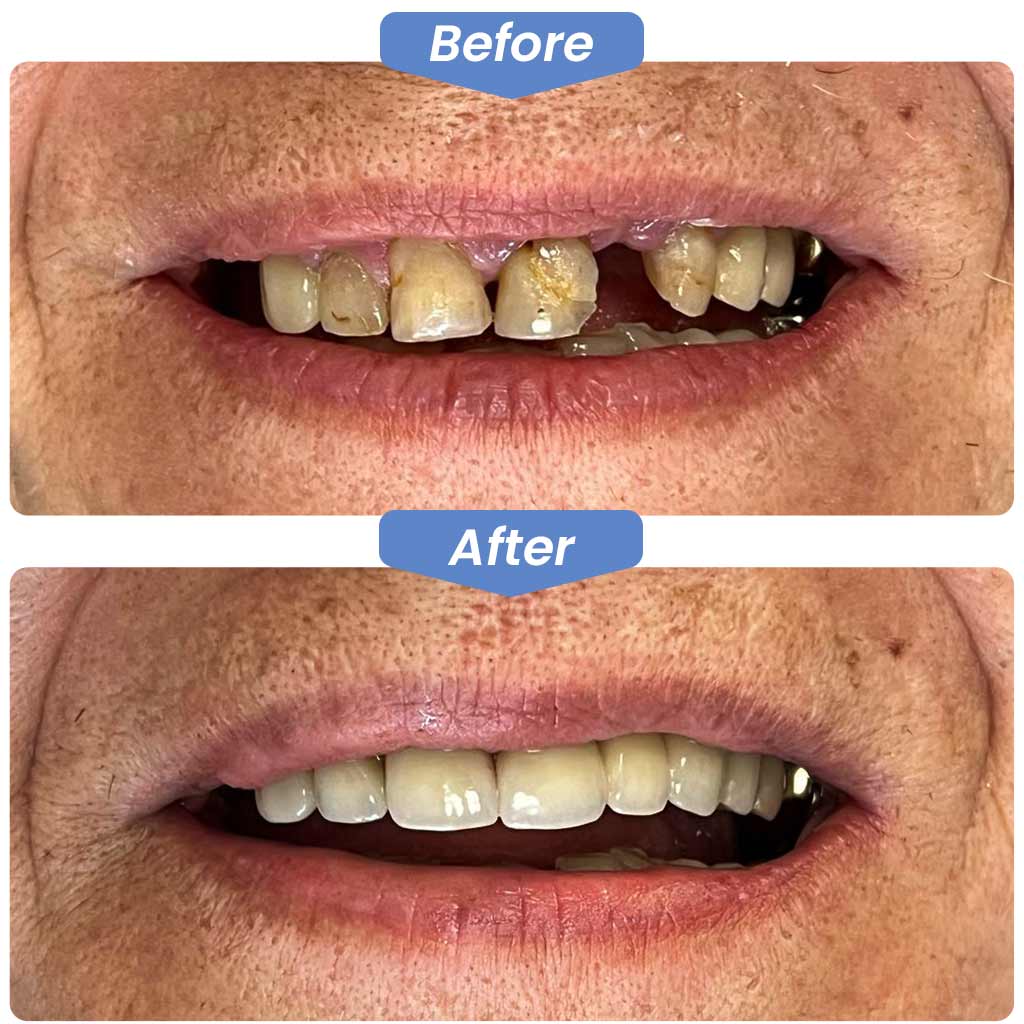
Best Painkiller for Sensitive Teeth After Whitening
Over-the-counter pain relievers often help with sensitive teeth after whitening. Follow the dosage guidelines to avoid side effects. If pain continues, consult your dentist for advice. Some of them include:
- Ibuprofen which reduces pain and inflammation and is commonly used for dental discomfort.
- Acetaminophen that alleviates pain but doesn’t reduce inflammation is good for those sensitive to ibuprofen.
- Aspirin which offers pain relief and reduces inflammation, though it may be harsher on the stomach.
- Naproxen, which provides longer-lasting relief for moderate pain, also reduces inflammation.

Best Toothpaste for Sensitive Teeth After Whitening
The best toothpaste for sensitive teeth contains potassium nitrate or stannous fluoride. Potassium nitrate calms the nerves in your teeth, reducing pain, while stannous fluoride forms a barrier over exposed tubules, blocking irritants. Regular use can greatly ease sensitivity after whitening and prevent future discomfort.
Home Remedies for Sensitive Teeth After Whitening
Natural remedies may also help ease sensitivity, such as:
- Saltwater rinse cleanses and reduces irritation. Use 1-2 times daily, especially after meals. Mix ½ tsp salt in a cup of warm water, swish for 30 seconds, and spit.
- Coconut oil pulling reduces bacteria and may lower sensitivity. Swish 1 tbsp of coconut oil for 10-15 minutes, 3-5 times weekly, then spit into a trash can.
- Baking soda rinse balances pH and soothes teeth. Use 2-3 times weekly. Dissolve ½ tsp in a glass of water, swish for 30 seconds, and spit.
How to Prevent Sensitive Teeth After Whitening?
Preventing sensitivity can save you from pain. Here are a few preventive measures:
- Choose gentler whitening products, as lower-peroxide products tend to cause less irritation.
- Take breaks between treatments since they give your teeth time to recover.
- Use fluoride products to build enamel strength before and after whitening.

Conclusion
Sensitive teeth, after whitening, often cause discomfort but do not have to last long. With proper care, such as using desensitizing toothpaste and avoiding extreme temperatures, you can ease this discomfort and enjoy your bright smile. If sensitivity continues, speak with your dentist to explore other options for relief, including fluoride treatments and professional advice on managing sensitivity.
FAQs
Yes. Porcelain cosmetic veneers cover the tooth surface, which can reduce sensitivity and provide a brighter, longer-lasting smile without repeated whitening.
Use fluoride treatments and desensitizing toothpaste to build strength in your teeth. Avoid acidic foods to prevent erosion and practice good oral hygiene.
No, whitening does not weaken teeth. The process opens enamel pores, which leads to temporary sensitivity. This usually fades as the enamel naturally rebuilds itself.
It’s rare, but intense or frequent whitening may irritate the nerves in your teeth. Limit whitening treatments and speak with a dentist if you notice lasting pain.
Sensitivity typically lasts from a few hours to a couple of days. For those using whitening strips, it may last longer, especially with repeated applications.
Use desensitizing toothpaste, fluoride rinses, and simple home remedies like coconut oil pulling or saltwater rinses to reduce discomfort. These solutions often help restore comfort quickly.









